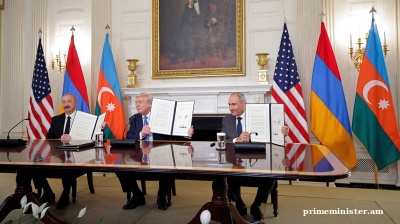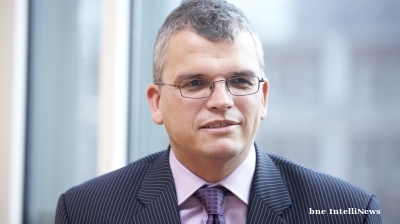The billion-dollar question of whether the Central Bank of Turkey (CBT) will lower policy interest rate(s) at its next Monetary Policy Committee (MPC) meeting on April 20 seems to have been resolved – at least for now.
According to official figures released on April 4, consumer prices actually fell 0.04% in March, less than the 0.6% rise expected by analysts. As a result, annual inflation sank from 8.8% to 7.5%. In their research notes on the inflation statistics, many economists highlighted that they expect a cut in the central bank’s overnight lending rate, which serves as a ceiling on its funding rate.

In fact, the details underneath the headline figure are not that rosy. For one thing, the sharp fall in annual inflation during the last two months has mainly been on the back of volatile food prices, which decreased 1.5% monthly in March. Annual food inflation, at 4.6%, is much lower than its long-run average of 8-9% and is, therefore, not sustainable. In fact, core inflation, which excludes volatile energy and food prices, has barely moved.

With the CBT having emphasized, time and time again, the importance of core over headline inflation in the direction of monetary policy, one should then expect them to stay on hold on April 20. After all, the central bank has missed its inflation targets by a wide margin for the last five years – and hit them only twice during the last decade.

However, the central bank is likely to use the fall in headline inflation as an excuse to cut policy rates because of the most important element of its rate-setting process: what President Recep Tayyip Erdogan and his economic advisers want to see. They regard lower interest rates as vital for political reasons, and have been pressuring the CBT to cut. Erdogan went as far as to call the central bank governor Erdem Basci “a traitor” early last year for not having reduced interest rates by enough in his estimation.
Basci would have probably gone for a cut to avoid the president’s wrath, if for nothing else, but he probably will not be around to do so. His term ends on April 19, just a day before the MPC meeting. While it is widely expected that he will not be reappointed, I would not completely rule out a second Basci term, especially since Erdogan has not been particularly vocal against him and the central bank for a while.
Even so, finance professionals and the financial press have been speculating on who the next governor will be. A Barclays executive’s name has been linked to Prime Minister Ahmet Davutoglu’s top choice, as well as two current MPC members and the chief economist of a major Turkish bank who is well-known for his pro-government commentary.
Due to the complex and technical nature of monetary policy, central bank governors are usually well-respected Ph.D.-toting economists, who also happen to be familiar with financial markets. None of the names mentioned so far fits this description completely. However, any of them, or anyone else put forward by Prime Minister Davutoglu, would still be market-positive, as they would be preferred to Erdogan’s choice.
The president’s chief economy adviser, Cemil Ertem, recently stated that monetary policy should not be determined from London or Washington DC, implying his (and probably his boss Erdogan’s) opposition to any of the candidates mentioned so far – or anyone with similar credentials for that matter. Erdogan’s top criterion is probably loyalty rather than academic badges or insight into the markets – especially after the paroxysms he had dealing with Basci.
Whether Davutoglu or Erdogan gets his say, the new governor is likely to reduce the overnight lending rate this month, not only because of the fall in inflation, but also global developments. The European Central Bank’s most recent policy rate cuts, the US Federal Reserve’s reluctance to hike its own rates, and easing China worries have all led to the resumption of capital flows to emerging markets.

Despite its challenging geopolitics, Turkey got its share of the flows: during the last six weeks, net inflows into Turkish equities and government bonds amounted to $1.5bn and $1.4bn respectively. As a result, the Turkish lira/US dollar exchange rate has fallen from TRY2.97 in the middle of February to around TRY2.82. The central bank cares about the lira, not only because of the exchange rate pass-through to inflation, but also the large foreign currency debt of Turkish companies.

The new governor (or Basci if he is reappointed) would want to capitalize on this favourable global environment with a rate cut on April 20. In fact, as annual headline inflation is likely to fall further in April and May as well, more cuts could be on the cards until the summer, when the decline in tourism revenues is likely to bite the lira – unless global markets turn sour, cutting the flow of money into Turkey and dragging the lira down with it.
But the size of the cuts would depend on who the governor is. Basci or someone on Davutoglu’s list would probably go for measured cuts, whereas an Erdogan appointee might want to prove his loyalty by going for large ones. Markets are currently pricing in the latter scenario: the one-month swaps rate, at 9.85% on April 4, is 0.65 percentage point lower than the overnight lending rate of 10.5%. However, I would not make too much out of market pricing. After all, the three-month swaps rate is only at 9.75%, despite the likelihood of further cuts.
The size of the cuts, in return, will seal the fate of Turkish markets and the economy. Smaller cuts could be made up for with measured hikes once the global environment deteriorates. However, large cuts would probably lead to significant capital outflows and market turmoil sooner or later, leaving the CBT with no option but to hike much more than the size of the original cuts, as in October 2011 and January 2014, depressing an already-weak economy further.

I believe that President Erdogan will get his way in the end, and his cherry-picked governor will cut aggressively in April and May. Despite the consequences, I am actually looking forward to it. After all, how else can we test if lower interest rates beget lower inflation, as Erdogan has been claiming? It is time we find out who is right: the economics profession or the World Leader…
Emre Deliveli is a freelance consultant and economist. Follow him on https://medium.com/@EmreDeliveli or at Twitter @EmreDeliveli.
Opinion

COMMENT: US-brokered Armenia-Azerbaijan peace deal exposes Russia’s strategic failures
The recent peace breakthrough between Armenia and Azerbaijan is a major diplomatic win for the United States and a setback for Russia, according to a new report published by the Atlantic Council.

COMMENT: Why Beijing will never take Taiwan
Xi Jinping needs to think again before he sends so many young Chinese men and women to their deaths on Taiwan, for if the PLA does one day dare to land, they will be buried here.

COMMENT: Ukraine’s coming financial storm
“A crisis is drawing ever closer. It will break in Ukraine, but it won’t begin on the frontlines, where the country’s battle-weary brigades continue to impose a brutal cost on the Russian invader," writes Timothy Ash of BlueBay Asset Management.

BEYOND THE BOSPORUS: Performance postponed. Hotly anticipated “CHP” trial pushed into October
Every Turk up and down the country has an opinion on what Erdogan is up to.



